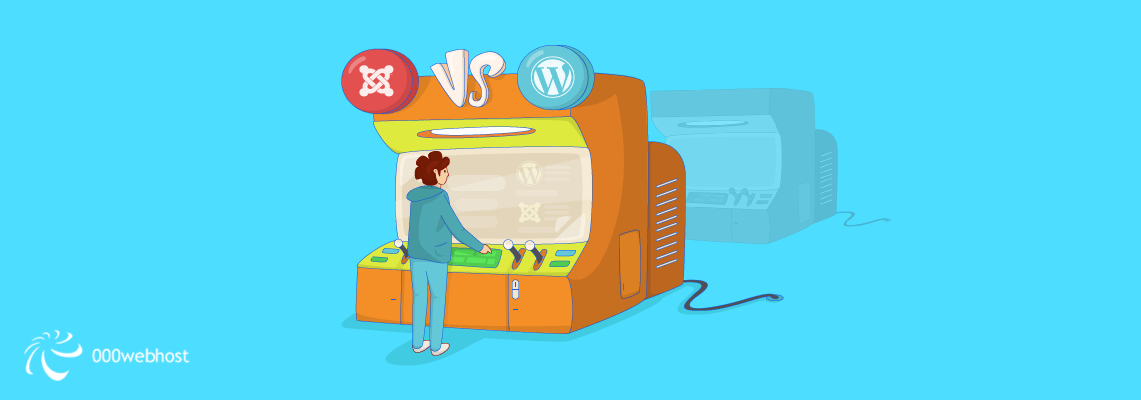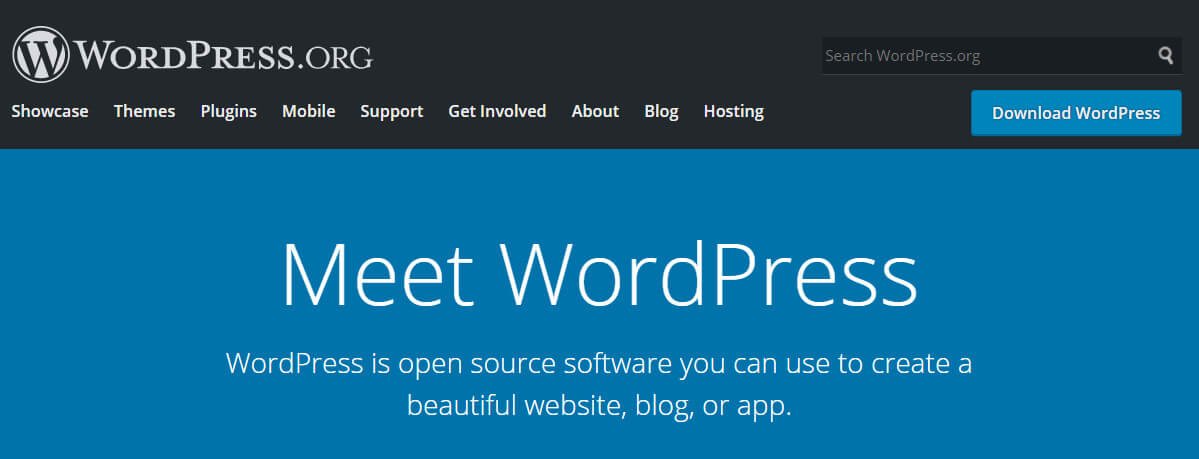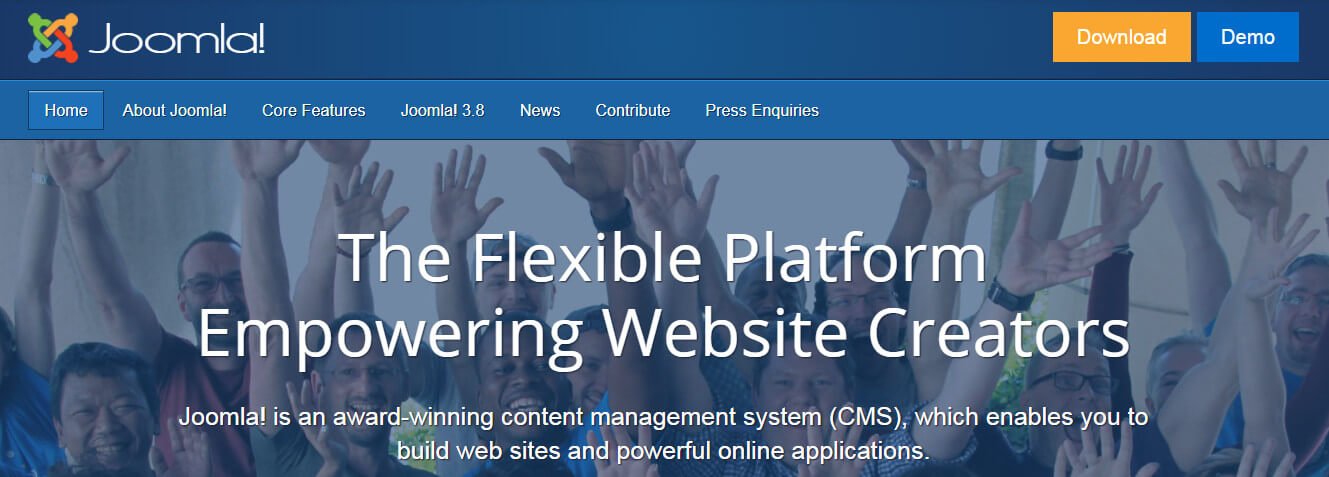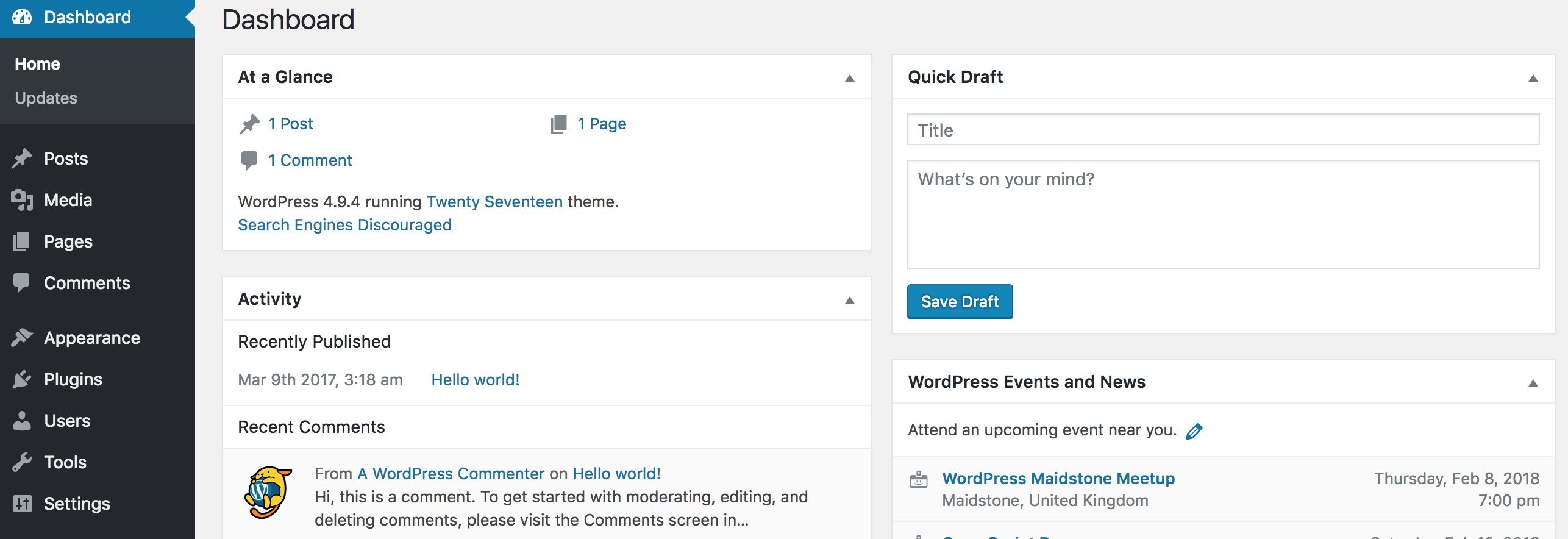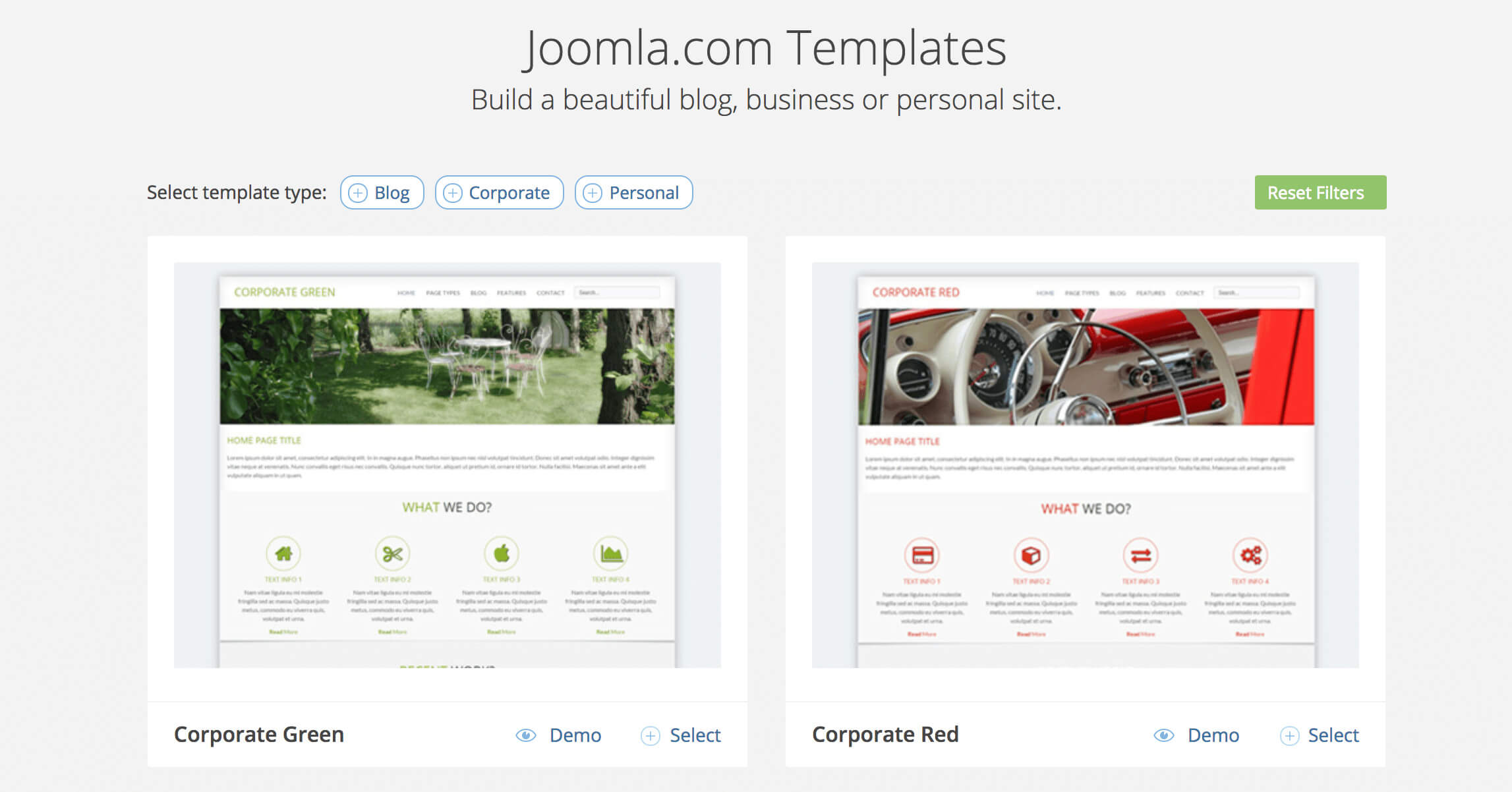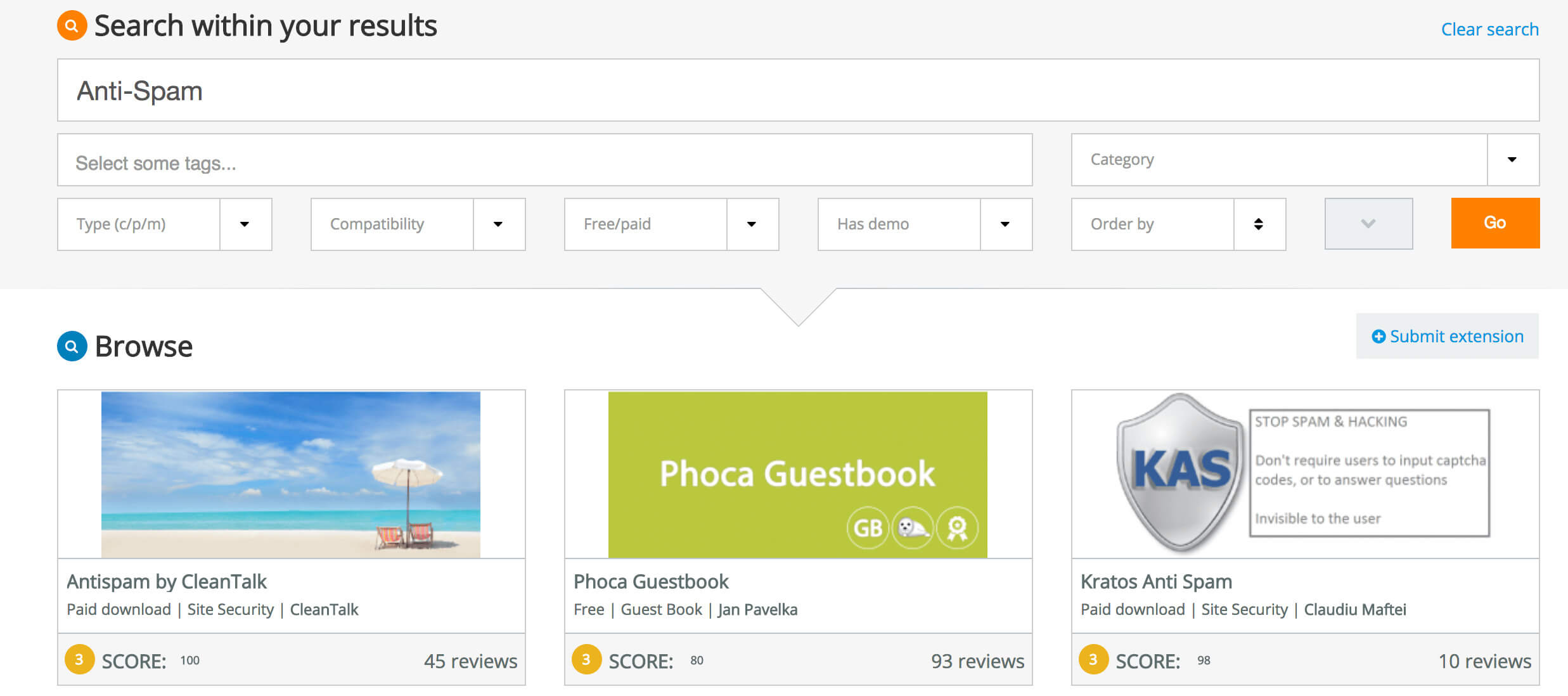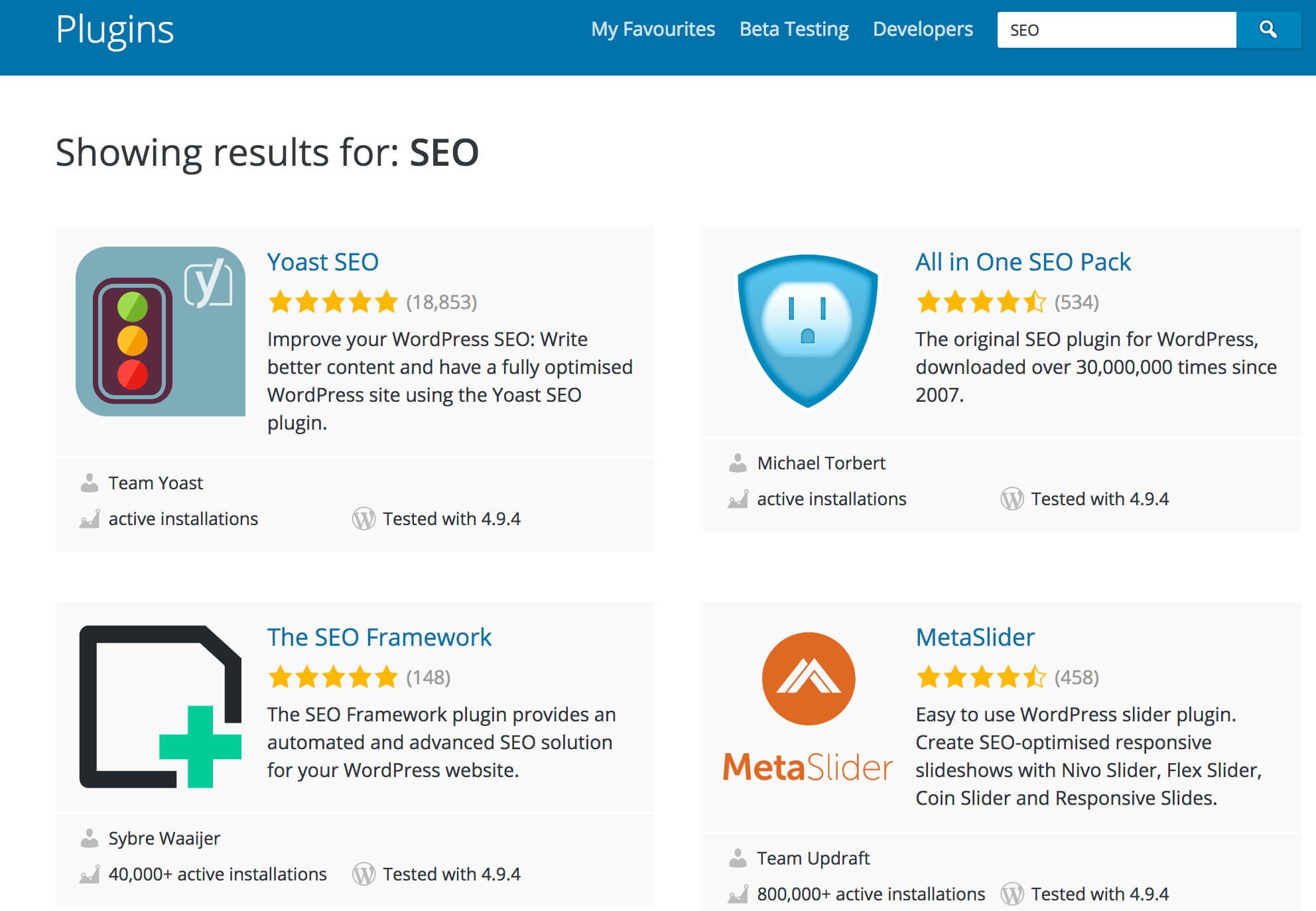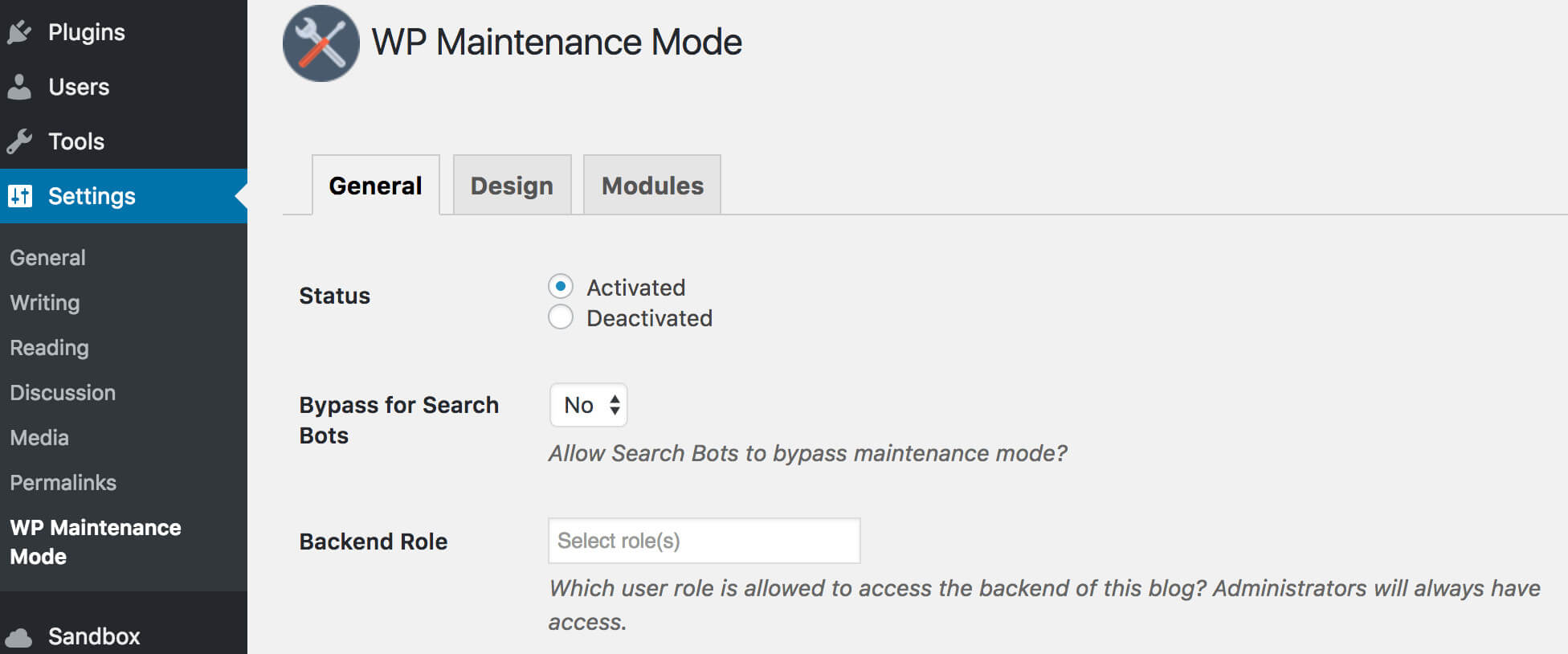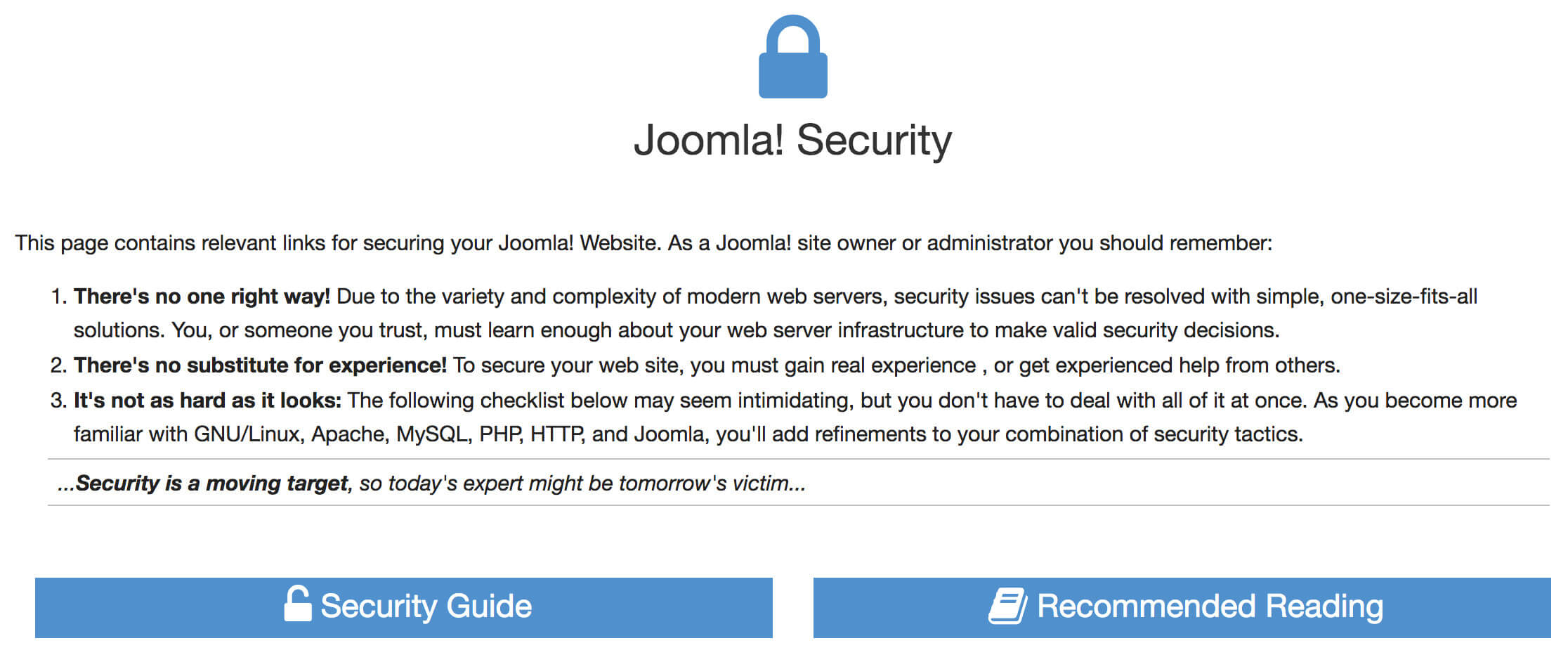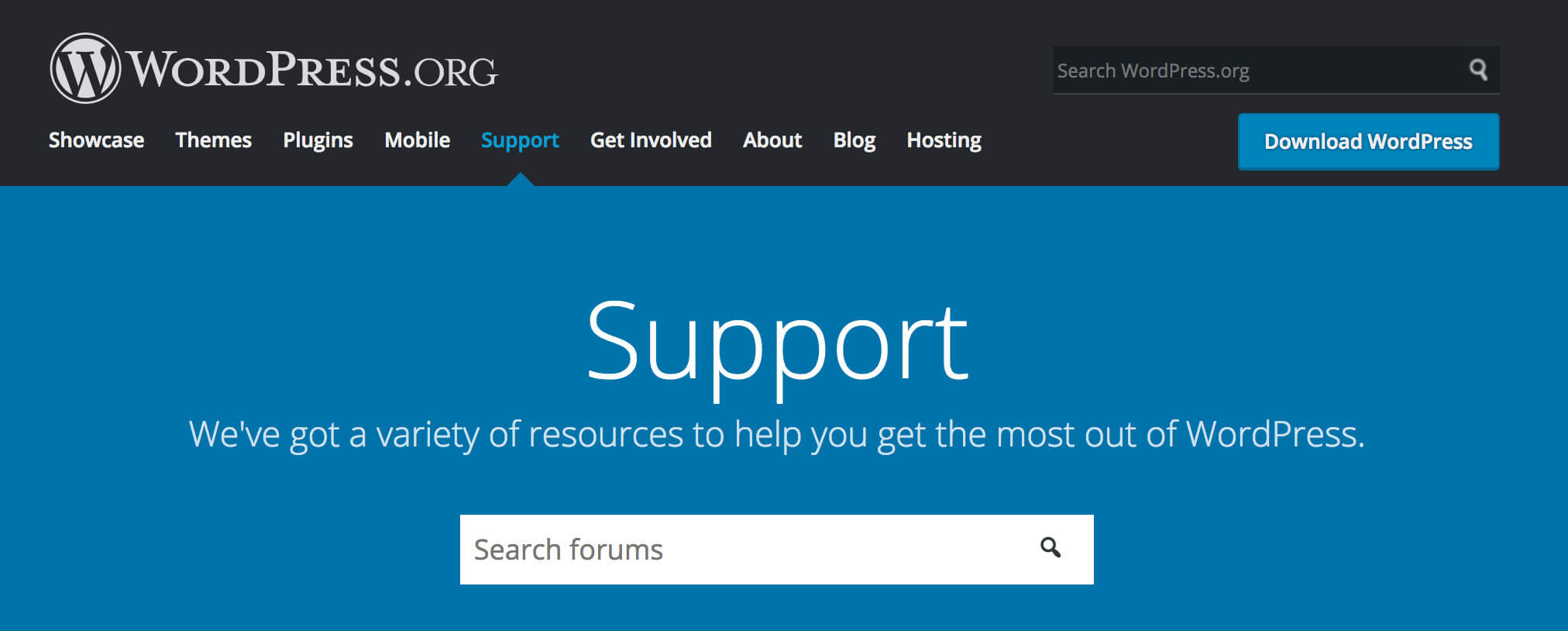The decision to build a website is easy. The tricky part is choosing which platform will help you best achieve your unique vision. A quick Google search will make it clear that WordPress and Joomla! are among the most popular Content Management System (CMS) options available. The inevitable question to ask is therefore: “Which one should I use?”
Ultimately, the definitive answer will depend on your precise requirements. When weighing up Joomla! vs WordPress, you will need to consider some important factors. For example, you’ll want to think about how much customization you’ll need to do on your site, as well as how much time you have to invest in maintenance and security procedures.
In this article, we will give you a comprehensive breakdown of both platforms. We’ll start by introducing their backstories and key differences, before examining their core strengths and weaknesses in more detail. By the end of this article, you will be able to determine who wins out for you when it comes to Joomla! vs WordPress. Let’s jump right in!
An Introduction to WordPress vs Joomla!
Before we explore the key aspects of Joomla! and WordPress, let’s have a quick look at the backgrounds of each platform, as well as how they differ on a basic level.
WordPress, initially developed and released in 2003, is a free and open-source CMS that is ideal for blogging, e-commerce, and websites of all sizes. This powerful, intuitive, and flexible platform has evolved steadily over the years, and now powers roughly 30% of the internet! It’s the perfect platform if you are looking to get an attractive, scalable, and responsive site up and running quickly.
It’s important to clarify right off the bat that we will be examining WordPress.org in this article – often referred to as “the real WordPress”. This is software that you can download, and requires domain name and hosting. No worries if you don’t want to invest in hosting – a free web hosting from 000webhost fully supports WordPress. It should not be confused with WordPress.com, which is essentially a hosting service.
Joomla!, founded in 2005 and positioning itself as a re-branding of the Mambo CMS, is also a free and open-source platform. Currently, Joomla! powers roughly six percent of all websites. It is well-suited for large-scale business sites, and offers an array of templates and extensions (these are the equivalent of WordPress’ themes and plugins respectively).
Let’s summarize the primary differences between Joomla! vs WordPress, using a few basic comparisons:
- Complexity: Although you certainly don’t have to be a developer to come to grips with Joomla!, it is significantly more complex to use than WordPress. Although this does mean that Joomla! enables a bit more freedom for site customization and structuring, the process isn’t quite as straightforward as with WordPress.
- Blogging: Because WordPress began as a blogging platform, it is much easier to get your posts up quickly and easily. Although Joomla! has advanced a fair deal when it comes to blogging, the platform isn’t nearly as streamlined as WordPress, and still requires you to download extensions to build a standout blog.
- Focus: Joomla! places great emphasis on being a community platform, and provides an array of social networking features. WordPress also has a strong community focus, but puts much more of an emphasis on user-friendliness.
- Speed: With the right hosting platform, WordPress sites can benefit from lightning-fast loading times. Although a Joomla! site’s speed can, of course, also benefit from proper hosting, additional internal tweaking is required to optimally bring up the speed.
Now that we have covered the backgrounds and basic differences between Joomla! and WordPress, we’re ready to compare the more specific aspects of the platform. Let’s dive in!
Joomla! & WordPress Compared (7 Key Aspects)
When trying to decide between WordPress vs Joomla!, it’s useful to consider a few crucial aspects. In the following sections, we’ll compare the two platforms to see how they measure up.
1. Joomla! vs WordPress – Ease of Use
Naturally, a key component in your final choice will be how easy the platform is to set up and use. As you will be regularly using your CMS to create posts, update product information, engage with visitors, and so on, you’ll want to ensure that it’s simple to navigate.
Joomla! is relatively easy to get started with. The manual installation process is well documented, and configuring the settings to meet your requirements is fairly straightforward. In fact, the WordPress and Joomla! manual installation processes are relatively similar. The speed at which WordPress can be installed can be impacted significantly by what hosting plan you are using, however. 000webhost, for example, offers a time-saving auto-install feature, enabling you to get your WordPress site up and running in minutes.
When the installation process is complete, the ease-of-use difference between the platforms is much more clear. The Joomla! control panel is a lot less intuitive than WordPress’ dashboard, despite the left-hand menus being structured along the same lines. For example, it is not immediately clear which function enables you to build pages, or determine the appearance of your site. Although there are far more options available in the default Joomla! installation than in WordPress, the effect will likely be more of a hindrance than a help to the novice user.
By comparison, the WordPress dashboard is far simpler to settle down with naturally. This is largely due to the admin’s ability to get a neat overview of important site elements, and view drop-down menus under each of the main options. For example, by hovering your mouse over the Appearance tab, you are immediately presented with options for adding themes, headers, widgets, and other customization elements. On the other hand, Joomla’s menu is broken down into less immediately understandable sections (Structure, Content, etc). In short, if you want to start building your site rapidly and with minimal confusion, WordPress is the better option.
2. Joomla! vs WordPress – Templates & Themes
Getting the look and feel of your site just right will likely be another primary concern. While you can build a gorgeous site on either WordPress and Joomla!, both platforms are not created equal when it comes to the amount of aesthetic options you have at your fingertips.
Essentially, templates (the Joomla! term) and themes (the WordPress version) are what you use to control the way your content is presented on your site. As such, they are a crucial design element. Joomla! offers about a thousand templates to choose from, while WordPress users can choose from thousands of free and premium themes.
With WordPress, you can search for a suitable theme directly from the dashboard by simply navigating to Appearance > Themes. Once there, you can refine your search according to popularity, subject, features and other factors. A search bar is also available, to help you rapidly find the best theme option for your needs.
Although Joomla! does enable you to search through templates from the control panel in a similar fashion, the search function is severely limited. There are very few options for filtering your template search. Plus, the search bar only corresponds to specific template names, rather than subjects. As such, you’ll generally have to go outside your website to find relevant templates.
As far as customization and modification goes, Joomla! offers a bit more flexibility than WordPress. However, the process of customizing a WordPress theme is a lot more straightforward. What’s more, WordPress enables you to create child themes. These are copies of existing themes, which let you make changes in a safe and speedy way. Joomla! lacks an equivalent of this feature, and the process of template development is slightly more convoluted.
3. Joomla! vs WordPress – Plugins & Extensions
In order to build a stellar website, you will need to extend its functionality to better cater to the needs of visitors and streamline site management. Plugins and extensions permit you to do this. However, it’s important to clarify what both of these terms mean in relation to WordPress and Joomla!
In WordPress, plugins are the primary tool at your disposal for enhancing your website’s functionality. There are thousands to choose from, providing everything from security features and SEO enhancement, to customer registration form modules and advanced analytics tools. Joomla! also offers plugins, which are simply a type of extension (in other words, software that delivers additional functionality to a Joomla! site). Plugins in Joomla! have a much narrower scope, and are primarily used to modify content.
In short, Joomla! adds an additional layer of complexity when it comes to extending site functionality, whereas WordPress simplifies things by providing an intuitive, easy-to-browse plugin directory. For example, if you wanted to add a function to a Joomla! site, you would have to peruse extension subsections (components, packages, etc). Using WordPress, you’d just look up the kind of plugin you wanted and browse through the results.
What’s more, WordPress enables you to access and install plugins directly from your dashboard, with no third-party browsing required. The process for Joomla! is a bit more time consuming, in that you have to browse through an external directory, and then upload and install the files to your Joomla! installation.
4. WordPress vs Joomla! – Search Engine Optimization (SEO)
To ensure that your website ranks highly in search engines, Search Engine Optimization (SEO) is absolutely crucial. Typically, improving SEO involves adding key terms to various areas of your content, inserting internal and external links, and making your site as readily accessible to search engine crawlers (such as Googlebot) as possible.
As such, when examining Joomla! vs WordPress, you want to make sure that the platform you’ll be working with makes SEO management as easy as possible. WordPress is the clear winner when it comes to enhancing the SEO potential of your site. There are scores of handy SEO plugins to choose from. The most popular among these is Yoast SEO, which provides a simple traffic-light system for keeping tabs on your SEO.
Joomla! does offer a number of SEO and metadata extensions to choose from, and there are resources out there for boosting the SEO potential of your Joomla! site. However, none of these offer the kind of rapid and reliable SEO checking systems delivered by WordPress plugins. You’ll need to expend a lot more time and energy ensuring that your SEO is up to par on a Joomla! site than you would with WordPress.
Another major factor that affects your site’s SEO is what hosting provider you choose. After all, a site with poor uptime, no facilitation for growth, and a sub-par domain name will likely struggle in search engine rankings. Fortunately, with 000webhost, you can have peace of mind that the crawlers will consistently be able to locate and survey your site.
5. Joomla! vs WordPress – Maintenance
To keep your site running smoothly, it’s important to perform regular maintenance. This includes making sure that your site is updated, backed up correctly, spam-free, and quick to load. At times, you may need to perform more extensive maintenance to repair dead pages, replace inactive links, or restore your site following a hack. The CMS you use should make the process of regular site maintenance as simple as possible.
Joomla!’s interface does contain a dedicated Maintenance area. However, this is limited to site updates. It is also possible to put your Joomla! site in maintenance mode, so you can let users on the front end know that you are working on your site and it will be back online shortly. Although these features are useful, the profusion of options on the Joomla! control panel can make the process of site maintenance a tiresome and research-intensive process.
When it comes to WordPress site maintenance, there are numerous handy plugins available to alleviate the hassle. These enable you to create ‘Coming Soon’ pages, simplify site backups, ensure your site speed is up to par, and much more. As with Joomla!, you can also set WordPress to maintenance mode. However, WordPress offers more ways to do this, and simplifies the process of rerouting traffic accordingly.
Naturally, if you host your own WordPress site, you’re going to have to commit a lot more working hours to maintenance. Choosing a quality hosting provider, such as 000webhost, can make the task much easier. Once you’ve completed your one-click WordPress auto installation with us, for example, we’ll ensure that your site is backed up regularly, enjoys a 99% uptime guarantee, and remains easy to scale should you experience a sudden growth in traffic.
6. Joomla! vs WordPress – Security
The expression “safety first” applies perfectly to the process of choosing a CMS. You’ll want to make sure the platform you use will give you adequate protection from hackers, especially if you depend on your site for income. Both Joomla! and WordPress come with reliable core security features upon installation. However, both also require extended functionality to maximize security. The key differences lie in how easy this is to do on each platform.
Joomla’s main security issues generally pertain to database hijacking and code execution flaws, which can potentially give hackers the means to tamper with user roles and permissions. Joomla has made significant advances in security in recent updates, and maintains a comprehensive checklist to help admins resolve issues as and when they occur. However, the Common Vulnerabilities and Exposures (CVE) system has determined that the platform remains more vulnerable to the attacks described above when compared to WordPress.
WordPress does require you to take certain actions to ensure iron-clad security. These can include changing the default WordPress login URL, enabling 2-step authentication, implementing Secure Socket Layers (SSL), and setting up a firewall. Although this may seem like a long list of tasks, the process for each one is relatively easy. WordPress does come with extensive security documentation, but you will not need to be proficient with all the points in order to adequately protect your site. You can’t really say the same for Joomla!
As is the case with site maintenance, choosing the right web host is an important step for ensuring that your site is secured optimally. 000webhost, powered by Hostinger, will give you peace of mind through advanced security measures. These include weak password notifications, warnings about plugins that are out of date (and therefore vulnerable), anti-virus resources, and much more.
7. Joomla! vs WordPress – Help & Support
Finally, when building a website using any CMS, you are inevitably going to run into questions you don’t know how to answer. As such, you’ll want to consider what help and support features Joomla! vs WordPress offer.
Joomla! is set up to accommodate the needs of large-scale business sites. Since the platform contains more complex options and functionality than WordPress, the need for troubleshooting is much more likely to arise. Although the platform’s interface does give you immediate access to the Joomla! help page, it is relatively clunky to use, with no search bar for looking up a specific error or issue. The external Joomla! support forum also leaves something to be desired when it comes to navigability. As a result, you may find yourself in a position where you need to pay for an external developer or troubleshooter to tackle the specific issues you have with your site.
In stark contrast, the WordPress support forum lets you look up the issue you are dealing with quickly. What’s more, the various themes and plugins available on WordPress come with their own support forums, which makes the task of addressing specific enquiries a far less painful process. Each option in the WordPress dashboard also features a drop-down help button, which gives you a clear and concise overview of what to do. This makes for a quicker learning curve. Finally, the WordPress Codex lets you instantly look up terms that you may be unfamiliar with.
Of course, your hosting provider can alleviate the need to constantly pour over forums and guides. For example, 000webhost offers community support to help you rapidly resolve general issues pertaining to your WordPress installation.
Joomla! vs WordPress: Which Platform Is Right for You?
If you are moderately tech-savvy, and looking to build a large-scale and complex site, Joomla! is a viable option. It offers a slightly broader scope of customization than WordPress, without requiring the heavy use of extensions. In particular, it’s worth a look if you’re interested in creating an extensive business or social networking site.
If you want to build a robust, highly-functional, and well-supported site of any size, however, WordPress is the solution to go with. It is far more intuitive and beginner-friendly than Joomla!, and possesses a lot more options in terms of themes and plugins. What’s more, it’s far and away the more popular CMS, making it much easier to gain answers to your specific troubleshooting enquiries. For most people looking to build and customize a website, we highly recommend checking out what WordPress has to offer.
Conclusion
It’s important to take your time with the process of choosing a CMS to build your website with. The platform you pick will be the foundation for your site, and will determine how easy your site is to create and maintain. It will also impact your site’s security, scalability, performance in search engines, and much more.
When it comes to Joomla! vs WordPress, the choice you make will ultimately come down to what type of site you want to create. However, as we have seen in the comparisons above, WordPress offers much more in terms of layouts, extended functionality, and user-friendly design. With the right hosting provider, such as 000webhost, you can even get an outstanding WordPress site up and running for free.
Do you have any other questions about Joomla! vs WordPress? Let us know in the comments below!

